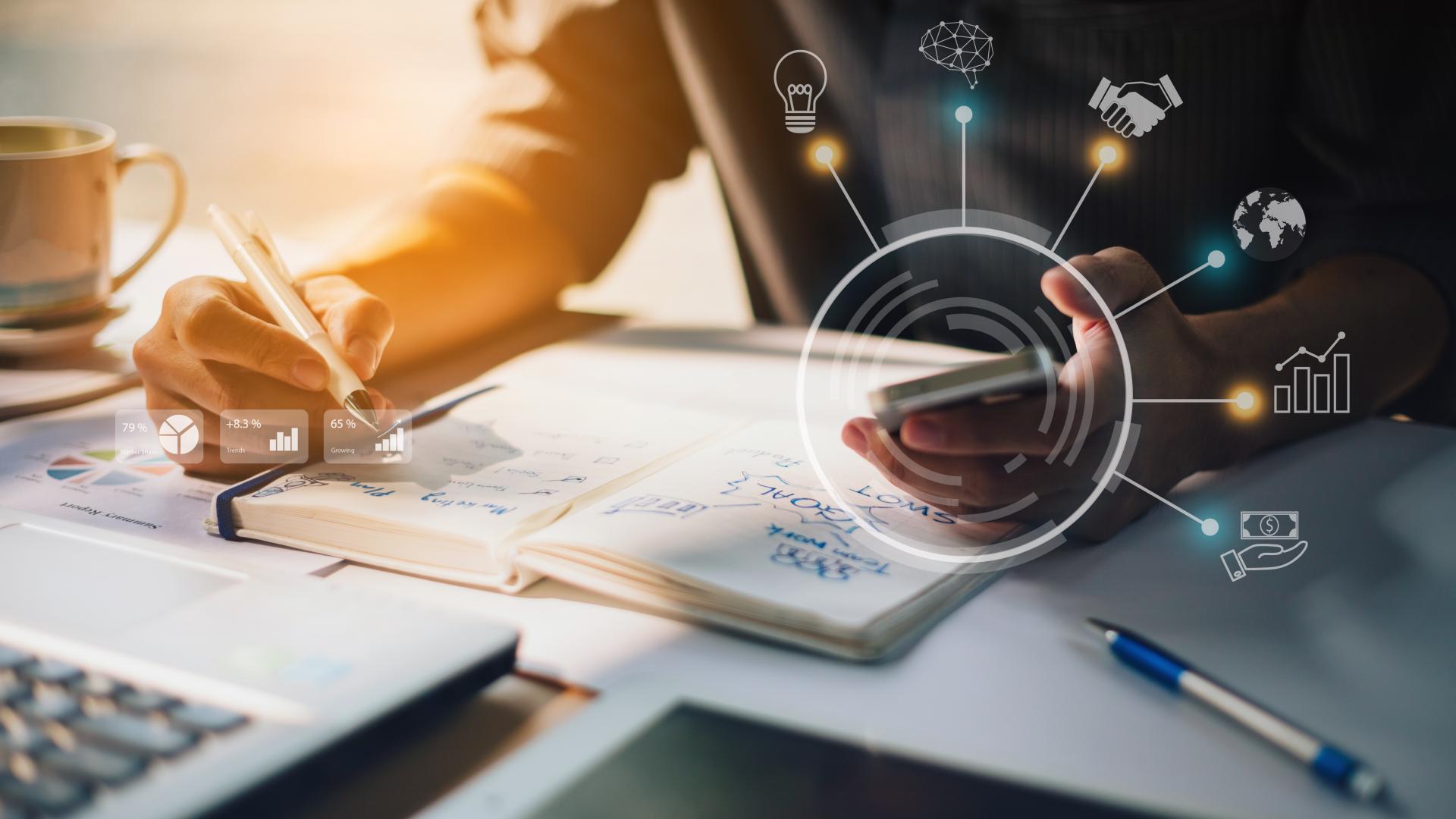
Understand the impact of technology on accounting and tax professions
Understand the impact of technology on accounting and tax professions
25 March 2022 - Digital Transformation
Accounting and tax professions today are highly concerned with the emerging technologies and their impact on their daily business. A lot of questions arise as digitalisation makes its way. Cloud computing, blockchain technology, AI and Machine Learning are terms currently used, but as to their concrete applications in specialised fields, there is still a lot of unknown terrain to cover.
As accounting and tax professionals, here are some of the questions that might be of interest to you in the present context. They will help you to identify the benefits to be gained by accepting the digital transformation:
1. Should I use the cloud for something else than pictures?
The cloud, or better said the clouds, offer a wide range of applications, ranging from simple storage to customised tools for the accountants or tax experts. Clouds can have multiple characteristics, adapted to the needs of the business. It is a flexible technology that not only permits the development of an extensive range of services for the customers but also eases the work of the employees.
2. Is there a way to execute some tasks faster?
We are always looking for more efficiency, and ways to work faster. Artificial intelligence could offer some solutions, but this is not the only technology enabling it.
Indeed, there are different layers of artificial intelligence and there are technologies deriving from it which can bring as much efficiency without the cost and investment that would be required by Artificial Intelligence. We are speaking here about Robot Process Automation or Data analytics.
3. Is blockchain something more than crypto?
A big yes! Blockchain is a technology more than anything. It is part of the bigger picture of the Distributed Ledger Technology (DLT). Its applications are enormous, developing every day and targeting a wide range of businesses (even outside of financial services). The technology itself does not require the crypto-assets part while the crypto-assets does not exist without the DLT technology. It is essential to distinguish the two and understand their respective business benefits.
4. How can I implement new processes smoothly within my company?
Change management strategy is key in all projects. Technology is scary for most of us. One thing for sure, you will need to take the process you want to change into consideration. But more than anything, you need to pay attention to your people. To do so, you need to have a proper change management strategy and follow some simple steps to ensure the adhesion of your staff to the technology implementation.
5. Can all signatures be accepted as legal evidence?
No, this is a way to protect consumers and your business relationships. There is a European regulatory framework (eIDAS) and some specific market practice. Before entering into an agreement, you need to ensure that the signature will be recognised. The current pandemic situation reinforces this requirement as several agreements are made on an electronic basis only.
6. Is there a framework around the use of cloud technology?
Cloud computing, due to its extensive use in the business world, falls under a specific regulatory framework. With the experience gained by the supervisor, the generalisation of the technology and the new developments, we have to maintain our knowledge over an evolving framework.
7. Is the use of blockchain regulated the same way everywhere?
Unlike cloud technology, blockchain does not have a standardised regulatory framework yet. It is still being investigated and thus offers business opportunities.
There are big disparities between Europe, Asia and the United States. While the technology itself seems to be accepted – even though there are concerns around the energy consumption – the crypto-assets part tends to bring more issues.
8. How should I declare transactions related to digital assets?
“That depends” is the traditional legal answer. There are some obligations based on the type of transaction. It is still difficult to know what these obligations are. There is a market-related practice in place and at the same time there are legal requirements emitted by the authorities via circulars. However, it is sometimes difficult to classify the digital assets and identify the right procedure to follow. A lot of work still needs to be done here.
Discover these 8 topics covered in our new training “The digital era: How technology is reshaping accounting and tax professions”, in a short interview with our expert Emilie Allaert.
And if you want to get the complete answer to these questions and understand the impact of technology on accounting and tax professions, enrol in the training and get a head start in preparing your future!
Share this article on :

